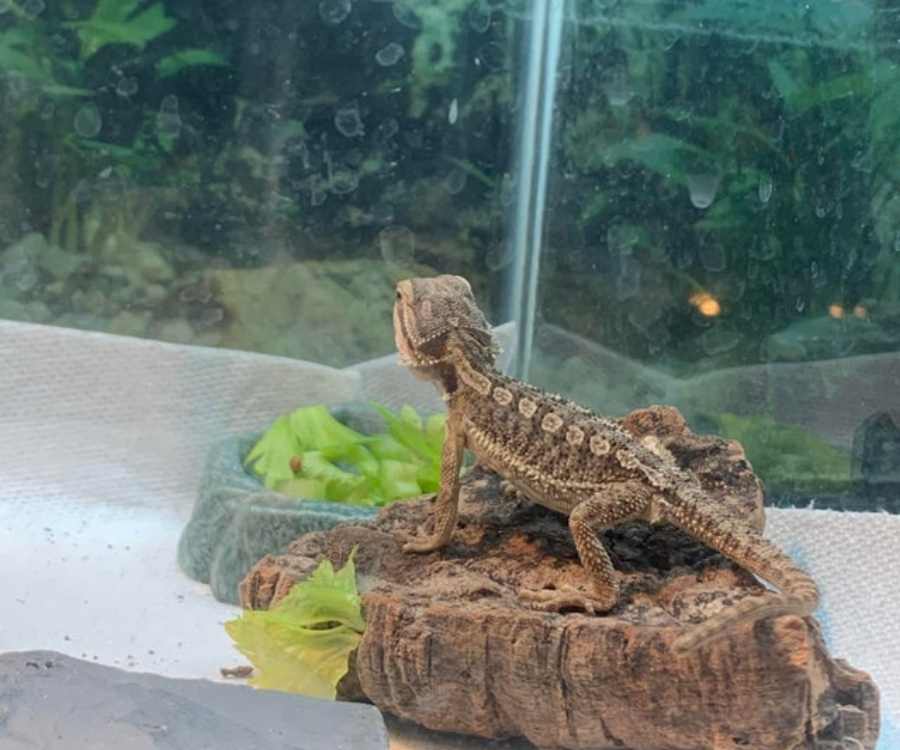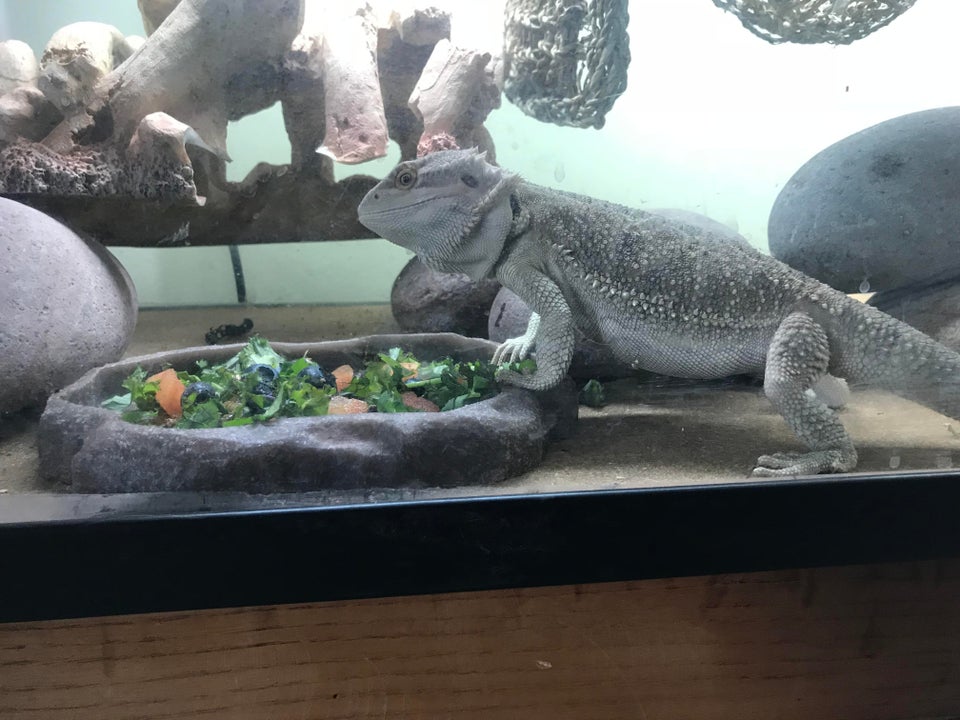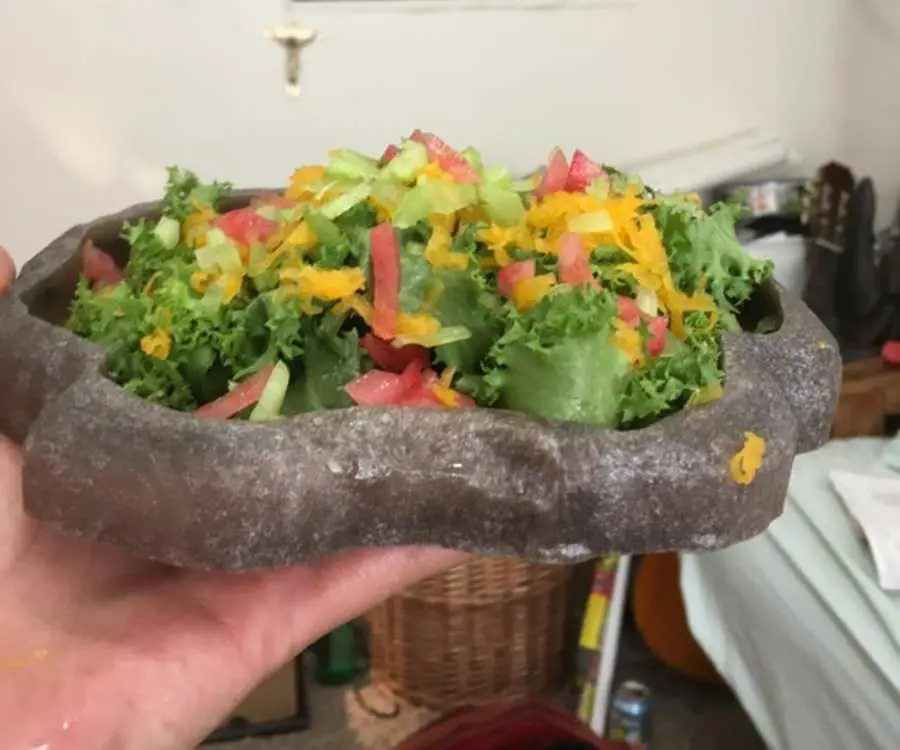Disclaimer: As an Amazon Associate I earn from qualifying purchases. Therefore, we may collect a share of sales from the links on this page, at no extra cost to you!

Can Bearded Dragons Eat Celery? (The TRUTH)
While bearded dragons are known to eat a wide variety of foods, many people wonder “can bearded dragons eat celery?” Although celery may be a tasty and crunchy snack that bearded dragons seem to enjoy, does that mean it’s healthy for them? With some uncertainty surrounding its usefulness to a beardie, many owners are uncertain whether to feed it to their pet.
So, can bearded dragons eat celery? The simple answer is yes, they can; but there is a catch. Although celery has a good calcium to phosphorus ratio and has several essential vitamins, celery is largely considered empty calories that do not benefit your bearded dragon in terms of nutrients. Hence, you should only feed your bearded dragon celery as an occasional treat.
Now that we’ve gotten past the basics, let’s look a bit deeper into the health benefits of celery, how it should be prepared, and how often you can feed it to your pet bearded dragon.
Jump to..
Nutritional Profile of Celery
When deciding how suitable a food is for bearded dragons, the first step is to look at its nutritional profile. This information will tell you how much nutritional value the food has to your beardie’s body and, as such, how often you should feed it to your pet.
Here is a table showing the relevant nutritional profile of 100g of celery, including essential nutrients like protein, sugar, fat, sodium, calcium, and phosphorus levels.
Source: Live Science
Can Bearded Dragons Eat Celery?

Can bearded dragons eat celery? The simple answer may be yes, but celery’s nutritional information shows that there is a lot more to it. It is evident that celery has various nutrients but being over 95% water, it is widely considered nutritionally poor. The level of proper nutrition it offers is generally lower than that available in other foods like kale.
Given the small size of a bearded dragon’s stomach and the reptiles’ complex nutritional needs, the food they eat needs to be of high nutritional value. Feeding your reptile celery will be filling their stomach with volume without providing much in value. Therefore, while you can feed celery to your bearded dragon, but It needs to be a treat and as part of a balanced diet.
That’s not to say that celery has no nutritional or health benefits to a bearded dragon, it has a few, but they may not be as pronounced as other foods.
Nutritional Benefits of Celery
Celery still has a couple of good qualities that will bring some nutritional benefits to your pet. These qualities include:

Celery has a good calcium to phosphorus ratio
The calcium to phosphorus ratio is of major significance in what bearded dragons eat. Calcium is essential to the healthy growth and development of bearded dragons.
On the other hand, phosphorus bonds with calcium, stopping it from getting absorbed by the body. Therefore, a good ratio of calcium to phosphorus is recommended to allow for easy absorption of calcium by a bearded dragon’s body. 1:1 is considered a good balance and given that celery has a ratio of around 1.3 to 1, it falls in the ideal range for these reptiles.
Without enough calcium or too much phosphorus, a beardie can end up with metabolic bone disease (MBD), which causes paralyzing pain and can be fatal if not treated in time.
Celery has flavonoids and antioxidants
Eating celery provides your bearded dragon with antioxidants and flavonoids, which promote good heart health and help reduce inflammation.
Hydration
With about 95g of water for every 100g, celery can be a good source of hydration for your bearded dragon.
Celery has beta carotene and vitamins
Vitamin C and beta carotene found in celery are good for the immune system and a bearded dragon’s growth. They also benefit the reproductive system and vision of the reptiles.
Celery is low in sugar
With about 1.34g of sugar in 100g, celery has a low sugar level which is right for your bearded dragon. Too many sugary foods will have you running to the vet every once in a while due to problems like obesity, tooth and gum problems, and stomach problems causing diarrhea.
Since a bearded dragon’s teeth are rooted directly into the jawbone and not the sockets, tooth problems tend to be far worse than in mammals. Tartar build-up on one tooth can quickly spread to the jaw, causing immense pain to the animal. This makes treating tooth and gum problems a long process that will take multiple sessions to complete and cost you a lot of money.
Therefore, foods of low sugar levels like celery are always a welcome addition to the diet.
Does Eating Celery Raise any Health Concerns?
Eating celery doesn’t really negatively impact the health of your bearded dragons. But even with the mentioned nutritional benefits, it is not the kind of meal you can feed to your beardie on an everyday basis. This is due to the following reasons:
Celery is mainly water
Around 95% water may be suitable for hydration, but it’s not ideal for a whole lot of other things, especially the nutritional value of celery. This much water means that even the key nutrients present in celery are only available in minimal quantities. And given the small size of a bearded dragon’s stomach, this doesn’t help. They fill quickly, meaning that each bite needs to be of a high nutritional value, especially in the first year of life when a bearded dragon experiences rapid growth.
Celery is low in calcium
Despite having an excellent calcium to phosphorus ratio, the amount of calcium present (40mg per 100g) in celery is too low compared to other vegetables. For instance, with 200mg of calcium per 100g, kale offers four times the calcium for the same volume of food.
Given the importance of calcium to the health of bearded dragon bones, celery shouldn’t be an everyday meal. There are better alternatives, like kale, that offer so much more calcium to your pet’s diet. Unfortunately, the same can be said to every other nutrient crucial to the health of a bearded dragon. These factors make celery nothing more than a treat that your reptile can do without.
How Often Should a Bearded Dragon Eat Celery?
Celery may not offer that much nutritional value to your bearded dragon, but it can still bring some much-needed variety to the menu. If you want to feed celery to your bearded dragon, it is best to serve it once every week or two and mixed with other nutritious foods. That way, you will add a little more variety to your pet’s diet without deviating a lot from the required nutrients.

Can Bearded Dragons Eat Celery Leaves?
Celery leaves are also okay to feed to your bearded dragon. Small portions contain amounts of vitamin E, calcium, and fiber that are good for your pet. You can either feed your beardy celery leaves only or together with the stalk. Whichever one you choose, make sure to only provide a complete portion. When preparing a meal using both the stalk and leaves, chop half a portion of the stalk and half a portion of the leaf to make a full portion.
Can Bearded Dragons Eat Celery Leaves?
When preparing celery, you still need to ensure that your beardie gets the most out of it. Here is a quick guide on how to go about it in the best way possible;
- Look for fresh celery, and preferably, go for pesticide-free organic celery.
- Wash the celery and stalks thoroughly and with clean water. This will wash away any dirt off the meal and remove traces of pesticides if the celery wasn’t organic.
- Chop the celery stalks into fine small pieces, and do the same with the leaves if you plan to include them. Small pieces are crucial because bearded dragons have tiny throats and are at risk of choking given too big pieces.
- Finally, add the celery to a food bowl containing other nutritious veggies and greens like kale, carrots, bell pepper, among others. To avoid feeding too much celery to your beardie, you can sprinkle a thin layer of the celery over the other veggies in the bowl.
Pro Tip: Experts recommend feeding raw celery to your bearded dragon. This is because cooking causes it to lose the little nutrients it contains.
What Is the Vegetable Alternative to Celery?
If you want to mix up your beardie’s diet while keeping it healthy, they are other better alternatives to celery available. This will come in handy if you are tired of feeding your bearded dragon the same food daily in the name of nutrition. They include:
Green Beans
Bearded dragons love green beans and will eat both the leaves of the plant and the beans themselves. They are a good source of vitamin B and beta carotene. Before feeding your reptile, make sure to wash them properly and chop the green beans well.
Turnips
These are not only an excellent source of vitamins A, C, and E, they also add calcium and fiber to the diet. You can feed both the leaves and the roots to your bearded dragon, but make sure to chop up the white-purplish root bulbs into small, comfortable pieces.
Yellow Squash
If you want to add a little bit of color to your pet’s healthy bowl of vegetable salad, yellow squash is an excellent choice. With adequate levels of vitamin C, magnesium, and potassium, it is a very nutritious addition to the bowl. The yellow color is also a very appetizing sight for any bearded dragon.
Sweet potatoes
Sweet potatoes are another great alternative to celery. They provide a steady amount of nutrition in multiple areas and add a lot of vitamin A to the diet. This is good for the eye and bone health of your pet and also helps in its growth and reproduction. It is useful when served once a week, raw without its peel, and chopped into thin strips to make it easy for your dragon to ear.
Bell peppers
Another colorful way to occasionally flavor your beardie’s diet is by adding bell peppers. These are rich in antioxidants, vitamins A, C, B6, E, K1, Folate, and potassium. They also have a high water content that is good for hydration. Like celery and all other foods in this list, bell peppers cannot be taken as a staple; once or twice a week is good enough.
Alfalfa sprouts
With a decent amount of vitamins A and C, a high water content, and a good source of fiber, alfalfa sprouts are another way to diversify your beardie’s diet. Nonetheless, they have a disproportionate calcium to phosphorus ratio, making them a once-in-a-while adding to the salad bowl.
What Not to Feed a Bearded Dragon
While you look for something to make your bearded dragon’s salad bowl more interesting, there are certain foods you should avoid. This is because some of these veggies may be toxic to your pet, or they just don’t bring any nutritional value to the diet.
Here is a quick list of foods to avoid:
- Lettuce- Have zero nutritional value and cause diarrhea.
- Fireflies- Are poisonous to bearded dragons and can be fatal.
- Avocados- Have oxalic acid, which is poisonous to beardies.
- Spinach- Has too much calcium, which is harmful.
- Rhubarb- Are very toxic to bearded dragons.
Summary
Bearded dragons may consume a wide variety of meals, but their nutritional demands are also quite high and specific. Therefore, not every meal is suitable for everyday consumption; and this is especially the case with celery.
However, it still makes for an excellent snack for your bearded dragon. It is crunchy and moist, and beardies enjoy its sweet taste. It also helps you limit your beardie’s sugar intake, avoiding issues with obesity and the teeth and gums. You still need to serve it as a portion of a full diet to meet your pet’s nutritional needs, but all in all, a bearded dragon can eat celery.
